Production legend Michael Beinhorn: my 12 career-defining records
Reflections on working with Soundgarden, Red Hot Chili Peppers, Marilyn Manson and much, much more...
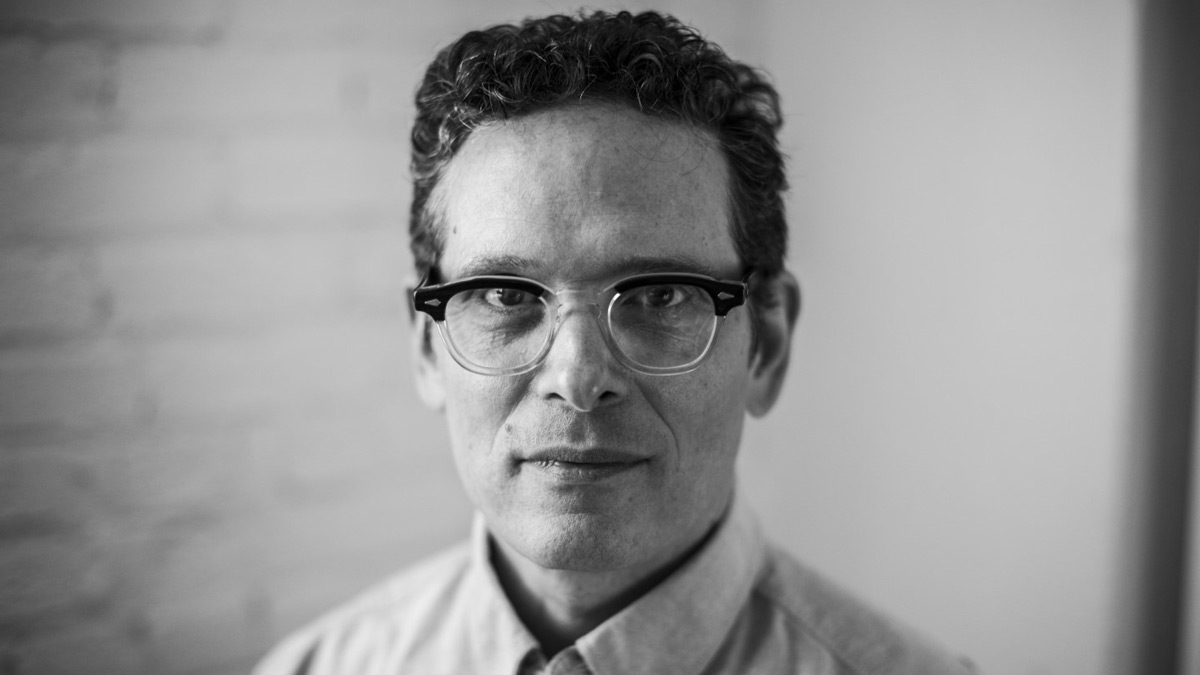
Black hole stunned
Ask American super producer Michael Beinhorn – whose recordings have a combined worldwide sales figure of 45 million – what he remembers about hearing Soundgarden hit Black Hole Sun for the first time, and he’s able to recall the moment in a flash of a second...
“I can even tell you what room I was in when I heard it,” says the man who has worked with everyone from Ozzy Osbourne and Marilyn Manson to Red Hot Chili Peppers and even Herbie Hancock. In 1993, he was drafted in to produce the Seattle quartet’s fourth full-length, in a bid to change things up after two records with Terry Date.
From the first two notes of Black Hole Sun I was absolutely transfixed. I’d never heard anything like it, thinking, ‘What in God’s name is this?!
“I was getting cassettes from [singer/guitarist] Chris Cornell in the mail,” continues Beinhorn.
“We’d had conversations about direction, talking about what he had been writing and where he wanted to go as a songwriter. To tell you the truth, the first few demo tapes I’d received prior to that point had been a little less than what I was hoping for… so I was kinda dreading it. But this particular four-song tape arrived and it started with Fell On Black Days...
“As soon as I heard that I was like, ‘I think we’re going to be okay!’ The next two songs were terrific, with this whole different energy. One wasn’t used on the record and the other, Tighter & Tighter, went on Down On The Upside. This fourth song started playing and from the first two notes I was absolutely transfixed. I’d never heard anything like it, thinking, ‘What in God’s name is this?!’”
The producer would certainly not be alone in his reaction to the music. Serving as the album’s third single, Black Hole Sun was dead-cert guaranteed to infect the airwaves – dissolving quirky Beatlesy melodies, doom-laden riffs and sleepy half-time rhythms into a searing 5 minutes and 18 seconds of alt-rock brilliance.
The track would sit at the top of Billboard’s Mainstream Rock charts for nearly two months, backed by a video that won them a gong for Best Metal/Hard Rock Video at the 1994 MTV VMAs. Still to this day, it stands tall as one of the greatest rock songs of all time.
“I just couldn’t believe how the music just kept building,” says Beinhorn, laughing in disbelief all these years later as he retraces the sheer impact of that first listen. In many ways, it was a life-changing moment.
When you listen to music and assess it for a living, you’re constantly confronted with situations where one part of a song is really promising but the writer doesn’t lead it into something else that can maintain the continuum of what the original idea suggested
“The demo was immaculate. I’d never heard anything like it before – it felt transcendental because it took everything that was great about Chris as a songwriter and extracted it all out in a way that few people get to.
“When you listen to music and assess it for a living, you’re constantly confronted with situations where one part of a song is really promising but the writer doesn’t lead it into something else that can maintain the continuum of what the original idea suggested. When it falls apart, it can be disappointing – you’ve got something really good that never achieves full fruition.”
This is simply something that cannot be said of Soundgarden’s signature anthem.
“Black Hole Sun, on the other hand, keeps on opening. Every new section comes along and blows you away, to the point where you’re wondering where things will go wrong because it almost can’t continue being so good. On that final chorus, I thought, ‘Oh my God, he actually did it!’ When you have a properly integrated verse and chorus, you’ve pretty much got everything you need. Anything after that is window dressing.
“By the end, I realised there was not one thing out of place. Only after listening to it 15 times in a row did I realise I couldn’t stop listening to a new masterpiece.”
Producing the goods
More recently, the producer has been focusing on a new pre-production service for the musicians and artists of today, offering his valued insight at affordable prices.
It’s not a “money-making machine” by the producer’s own admission – but rather a means to “putting something back into the artist community so bands can start making their own Superunknowns.”
Helping people see how much further music can go, showing them what’s wrong as well as ways to fix what’s wrong, changes your perspective immeasurably
His hopes are to inspire more thought going into the actual music being recorded before bands find themselves at the mercy of schedules and budgets – letting all the creative energies flow ahead of limitations...
“Some records would not exist in the form they do today if it wasn’t for pre-production,” explains Beinhorn.
“The process of addressing issues in the music itself. Songs, performances and attention to detail would be different. Even a song like Black Hole Sun would not have existed without some preliminary work from Chris. That’s partly why I’m focusing on this more than producing right now – people don’t do the pre-production enough. You need to use time efficiently and be dedicated.
“I realise people don’t have large budgets any more and just because that’s a reality, their music doesn’t need to suffer. I can think of so many examples of records that would have been better if they’d spent more time on this. Helping people see how much further music can go, showing them what’s wrong as well as ways to fix what’s wrong, changes your perspective immeasurably.
“It’s empowering because musicians realise what they can do and use the full potential of their creative spirit instead of just knocking the songs out.”
And with that, the producer takes us on a guided tour of just some of the highlights in his glittering career - click through for Michael Beinhorn's career-defining records...
To find out more about Michael Beinhorn's pre-production services, head over to his official website.
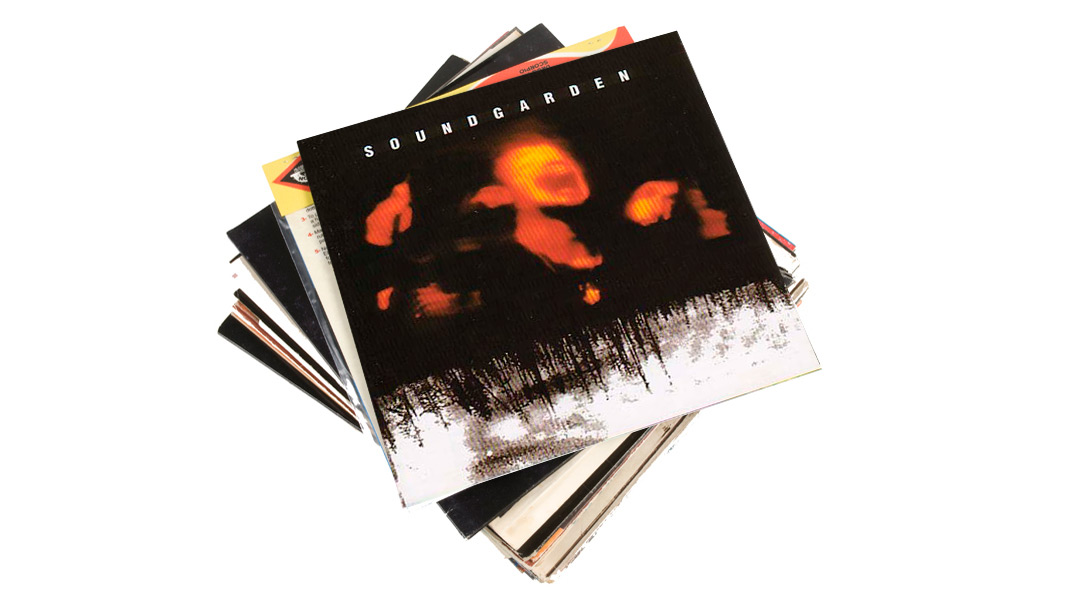
1. Soundgarden - Superunknown (1994)
“I would play Chris the music of Frank Sinatra before recording as an overall approach to his vocal.
Most of all, Chris Cornell was really thoughtful to what he did – I’d never met anyone as dedicated and focused to what he did
“I was finding Chris would sometimes dissociate when he was singing… he wouldn’t always be present emotionally. I wanted to show him the Sinatra stuff because of the phrasing and techniques used to make the performance even more real. In rock music people don’t play with their voices enough and try following the narrative in a different way.
“He did most of the vocal parts in the studio by himself - I set him up so he wouldn’t have to deal with interferences or wonder what people were saying in the other side of the room. He would sing for hours. He would sing until his head hurt so bad, he had to go home. When a person is willing to go that far, you can see the devotion they have to their craft.
“I guess like most of us, Chris was a mass of contradictions. Some days he could be really downhearted and not the most pleasant person to be around, other times he would be absolutely hysterical, joking around and being silly. It was a lot of fun actually and very entertaining. But most of all, he was really thoughtful to what he did – I’d never met anyone as dedicated and focused to what he did. That comes through when you listen to this album; he put so much into the performances as well as the songs.”
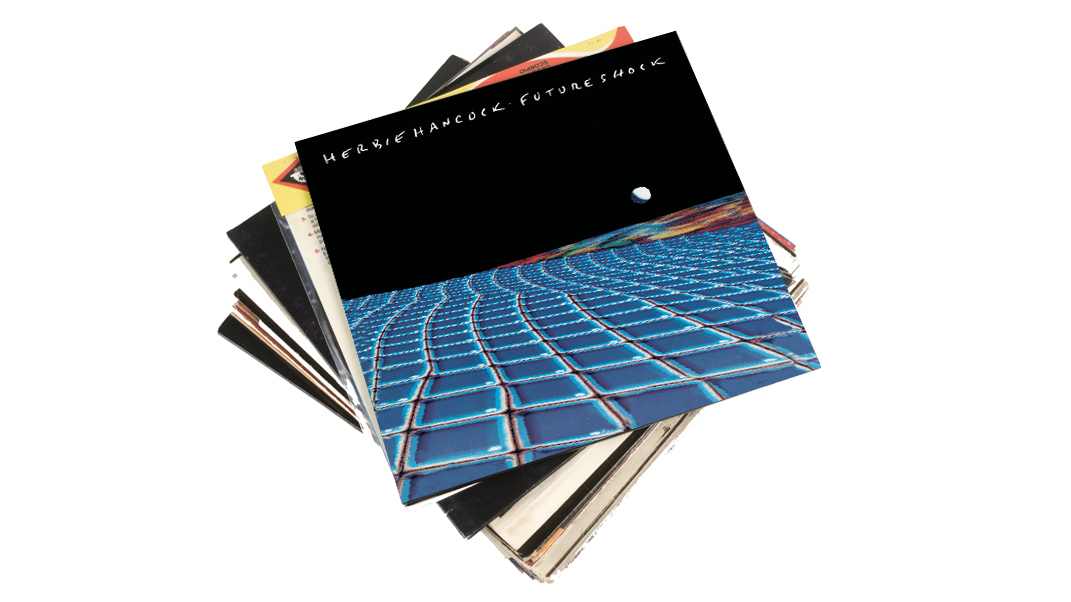
2. Herbie Hancock - Future Shock (1983)
“Each one of these records has a special meaning to me. I did Future Shock when I was 23 years old and it was the first time I’d left New York for a recording.
“It was mind-blowing to be involved in stuff like that… it felt like the ground zero for the hip-hop movement at that time - it really changed things. So being in my early 20s, that was a pretty crazy and intense album to be involved with.
“What was Herbie like? I think he was a little confused actually, haha! He didn’t have the same connection we had with the hip-hop movement going on back then, or understand the usage of turntables in music. He’d used synthesizers but nothing that deep, so it was like a whole new world for him.
“But honestly, I’ve never seen anyone handle a keyboard like that in my entire life. He was just devastatingly good on any keyboard. It was the kind of thing you will definitely remember on your deathbed!”
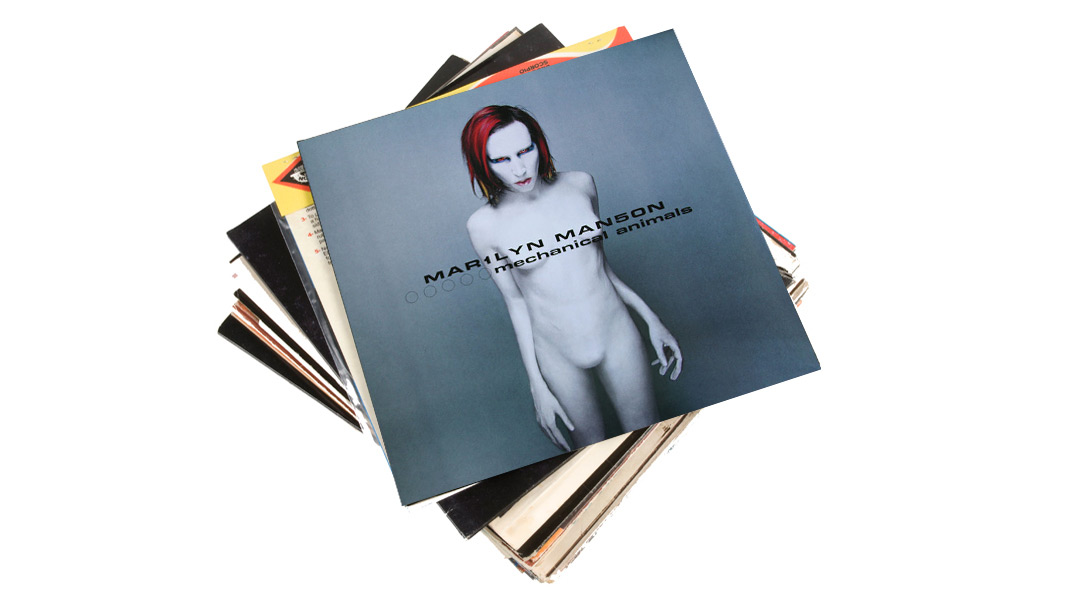
3. Marilyn Manson - Mechanical Animals (1998)
“Each one of these experiences felt so different, you could say it was one of the crazier projects I worked on given the characters involved, haha!
“I guess some of the more memorable moments I can’t really mention, other than blowing things up and making an enormous pile of garbage outside the studio, which was actually really funny because it drove the owner crazy.
“When we did the drums and bass – and the same goes for the Korn record I worked on as well – I would amplify things in the room using subwoofers. We were affecting everyone else’s sessions because the low frequencies were travelling and causing all this lighting to fall from the ceiling. We were tearing that building apart with the extreme volume of what we were recording!
“It got done relatively quickly, too… I think we spent a week and a half on pre-production. Marilyn had most of the songs done by the time I came on board.”
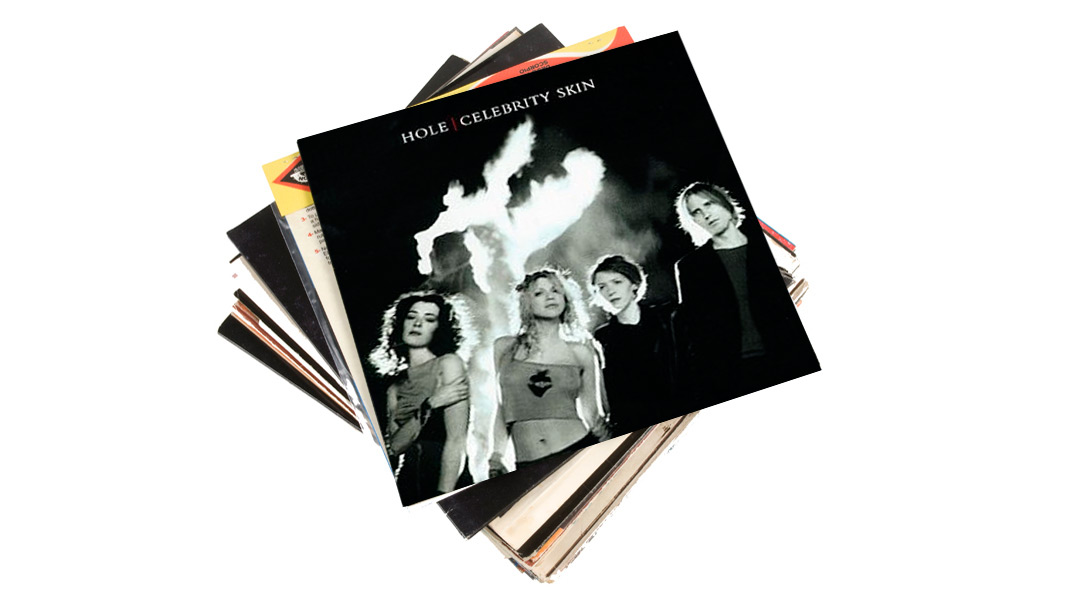
4. Hole - Celebrity Skin (1998)
“This felt like an exodus - it took about 14 months to make. I was starting on Mechanical Animals and this was still being mixed, which took quite a while. I don’t even know where to begin with this record - we started in Los Angeles; seven months later, we moved to New York.
“I don’t know how long it took to realise that Courtney’s vocals on the guide tracks had this emotion and power that I couldn’t get from anything else she did. At that point, she wasn’t thinking about she was doing – she was more present in the song. It was pretty cool!
“I’d say 70 per cent of what you hear on the record is from the first two takes of a guide vocal. It was kinda funny that for a record which took so long to make, we went back to the beginning.”
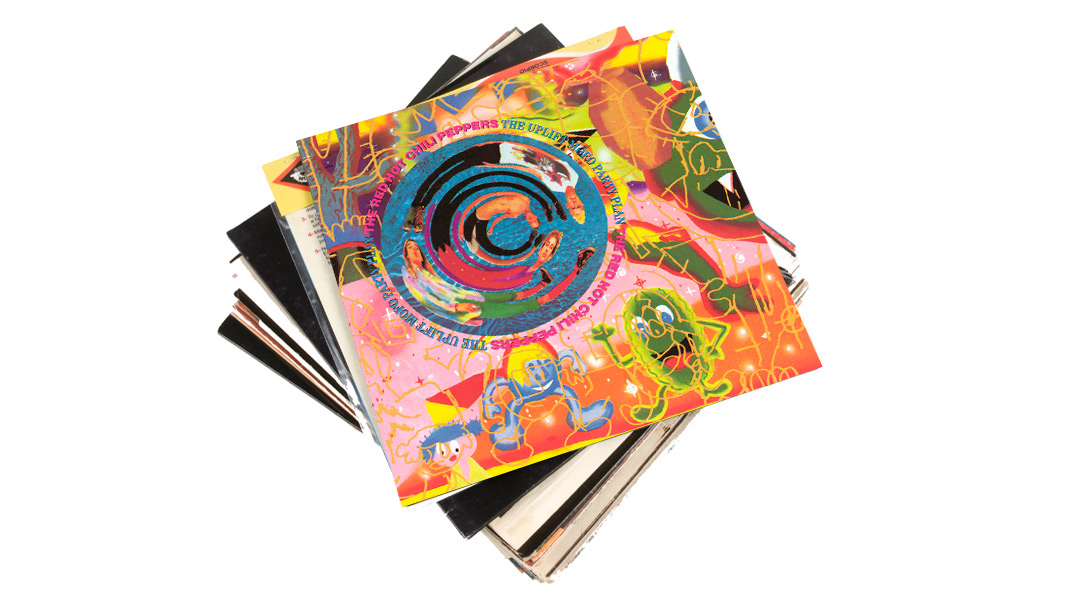
5. Red Hot Chili Peppers - The Uplift Mofo Party Plan (1987)
“There’s a crazy narrative to each of these records, but these could be the craziest.
“I did this project by travelling in a van with them for almost a full day between Louisiana and Texas. I soon learned there was not one but two heroin addicts in the band. This is something I’d never dealt with before, so you could say it felt like getting thrown in the deep end!
“Needless to say, all the drama nearly ended the band… but somehow it came together and was amazing. It was quite literally watching an artist being grabbed straight out of the jaws of defeat to victory and never looking back from there. That was the amazing thing about that process, as much as it was at times frustrating, depressing and scary. It was a pure triumph of human will.”
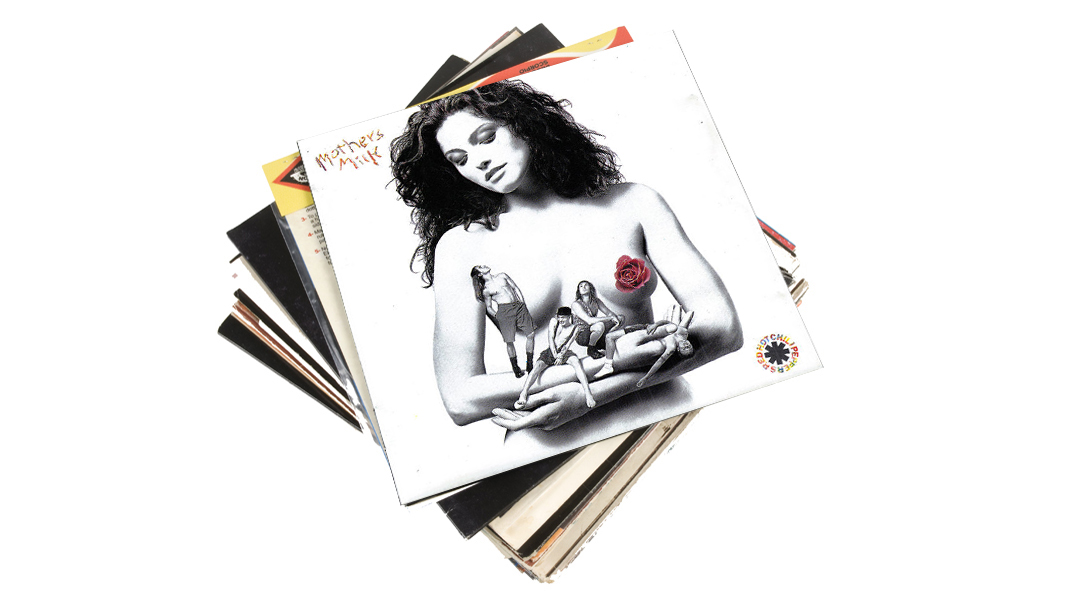
6. Red Hot Chili Peppers - Mother’s Milk (1989)
“Another memorable project and also another hard record to make! The process leading up to getting the other two guys in the band [guitarist John Frusciante and drummer Chad Smith] felt really time-consuming, almost like it added another year, maybe a year and a half, to the process. And again, I saw the whole thing come together.
“The band came from The Uplift… which wasn’t wildly successful, but certainly more successful than anything they’d done before, and suddenly EMI were interested.
“Though there were personnel issues that ate into the time, everyone found out that John was a really formidable songwriter – and that was when the personality of RHCP changed drastically.”
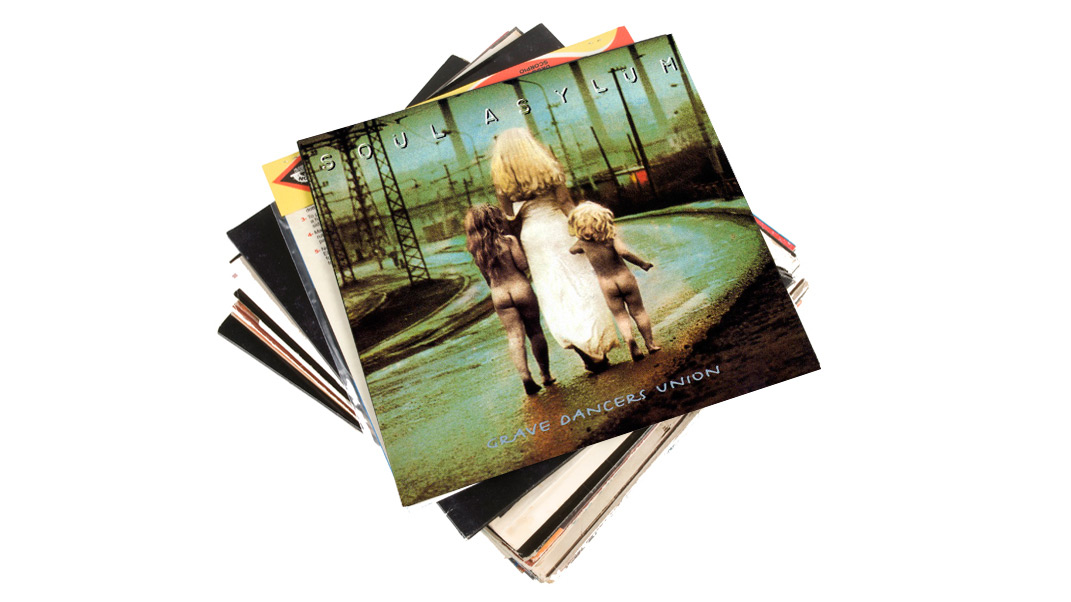
7. Soul Asylum - Grave Dancers Union (1992)
“This feels like another exodus, recording all over the country. One thing I’ll never forget is that we went to do Hammond B3 overdubs with Booker T. Which in itself was amazing – seeing a guy like that work and just cut five songs in seven hours was unbelievable.
“I wasn’t living in Los Angeles at the time, but we arrived the week after the LA riots, driving around looking at burned-out parts of the city. It felt like a different country- we were surrounded by devastation.
“That influenced the recording somewhat; it definitely made its way in. I met this person who was doing commentary about the troubles and managed to get that into one of the songs, adding this otherworldly feel to the whole thing.”
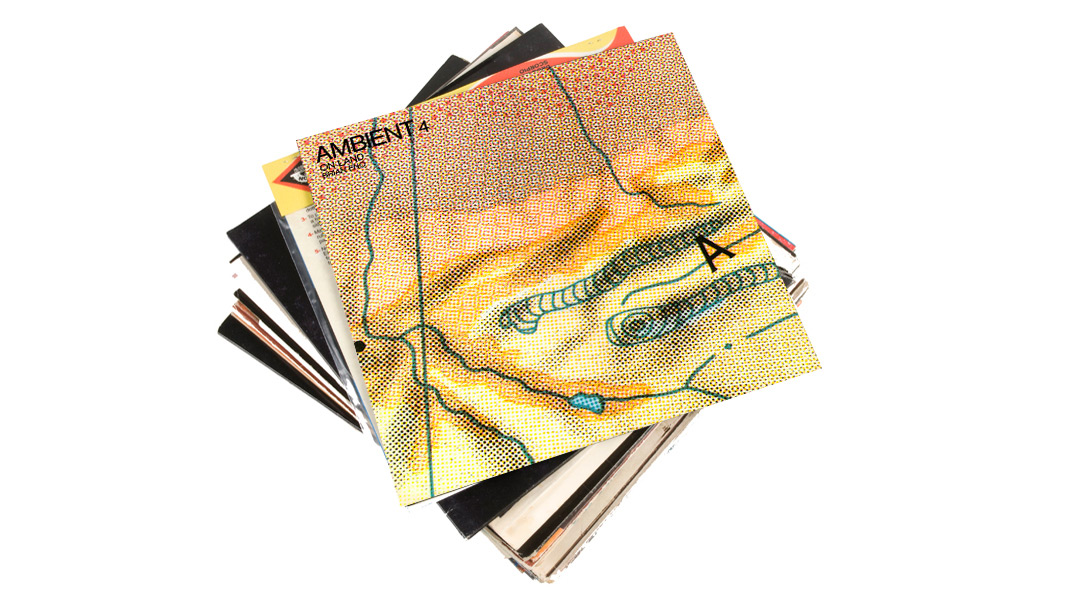
8. Brian Eno - Ambient 4: On Land (1982)
“I only wound up on one track on this album. I can’t say I was involved in the production, because it all got manipulated as part of Brian’s framework. But making that was easily one of the most formative experiences of my life.
“We were in a studio in Brooklyn, which would now be some of the most expensive real estate in the country, but at the time, it was a place you didn’t want to go… even in the day.
“It was so bad that there were factories with guard dogs and a lot of them would escape and form dog packs, running around neighbourhoods harassing people and killing other animals. It was pretty scary - you don’t know what life is like until you’ve been chased down a city street by German Shepherds and Doberman Pinschers. Seriously, don’t try this at home, haha!
“My friend’s dad was on top of a car for two hours surrounded by these dogs before the police showed up. That was the kind of atmosphere we were in working on that record. Working with Brian was the fruition of a dream of a lifetime. I was 21 years old, so it felt pretty extraordinary. I felt lucky every single day, being in a room every day with one of my heroes.”
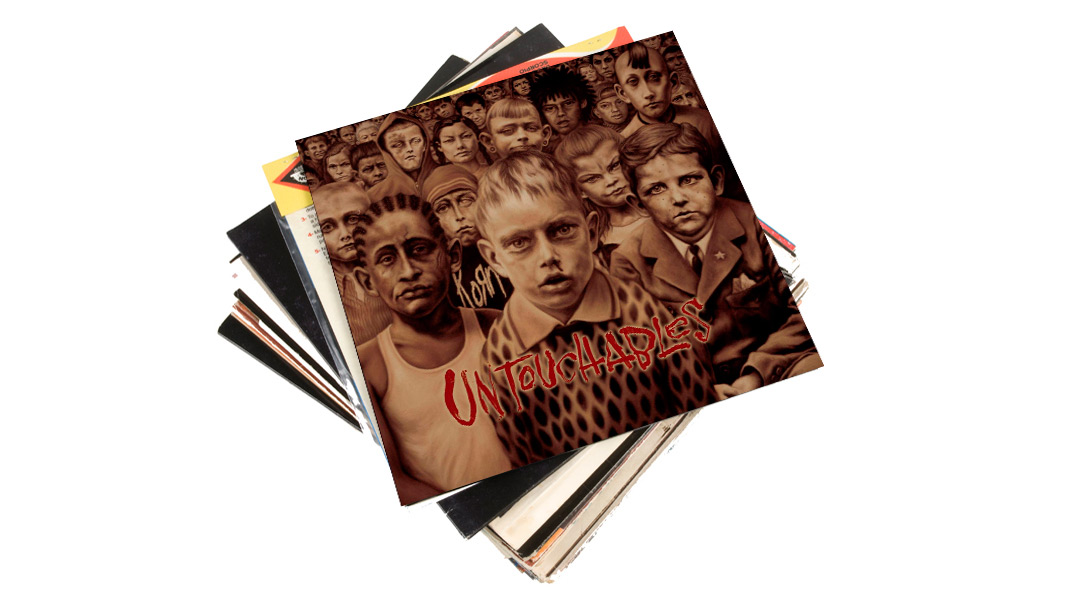
9. Korn - Untouchables (2002)
“This was a 15 month-long extravaganza where anything that could happen, did happen. If you can imagine it, I can guarantee it happened!
“We started pre-production in Long Beach and I realised that they were unfocused being around their families. I proposed we leave the state and head somewhere else, so they suggested Phoenix, Arizona. I thought it would be peaceful - I didn’t realise how many strip joints there were for pure insanity. You can only imagine…
“We rented three houses and I somehow ended up in the party house. It was this 7,500 square-foot ranch style house with huge living spaces and a giant kitchen - it was palatial. The process was long and arduous, at times very frustrating and at other times unbelievably amusing. We somehow made the record and we’re all still to this day really proud of how it came out.
A lot of artists are most vulnerable coming off their biggest successes
“A lot of artists are most vulnerable coming off their biggest successes. The whole world is telling them how great they are and they feel amazing, especially if they have insecurities. But that feeling can take over and guide you instead of allowing you to figure out what to do next.
“Someone will need to say, ‘You can go even further than you already have – it’s wonderful you’ve earned all these things, you deserve it, but you can always take things forward.’ And if you care about the people listening to your music, it’s your responsibility to do that.
“So that’s what happened with this album, and just like Soundgarden, they rose to the challenge. The same goes for all bands; it’s so easy to rest on your laurels and it’s hard to see that when you’re in the midst of it.”
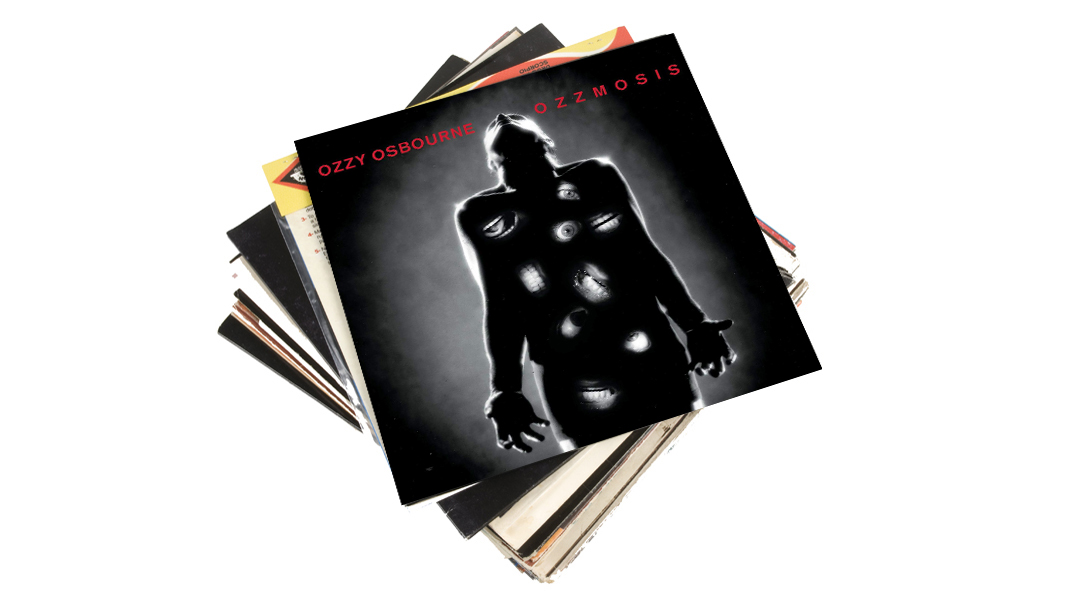
10. Ozzy Osbourne - Ozzmosis (1995)
“The whole experience was pretty unforgettable… how could it not be? Although the final product wasn’t exactly what I hoped for – I didn’t like the mix – one favourite thing about it was using this special analogue recording process I had developed to record the drums. I think those recordings came out stellar, but then they got lost in the mix…
“Hearing the drum sound in the studio was an amazing moment, as was working with Zakk Wylde. He was one of the most amusing, funny and uplifting people I’ve ever been around in my entire life. That guy was an absolute treasure and we had so much fun. We’d sit in the control room listening to ABBA and Fleetwood Mac until four in the morning wondering how anyone could ever beat it.
“As for recording with Rick Wakeman, what a day that was! The guy is an amazing player, but he was so fast when it came to humour, cracking jokes so much that me and the engineer would be in agony… our heads would be hurting. I almost threw up I was laughing so much.”
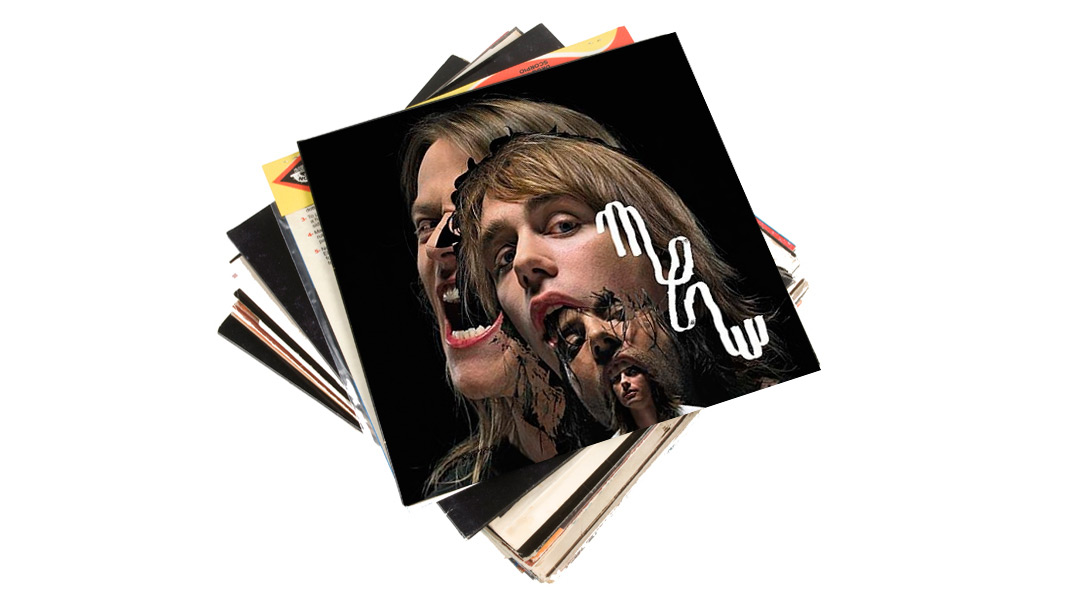
11. Mew - And The Glass Handed Kites (2005)
“When I first heard them, I thought it could be interesting and it ended up being one of the more abstract projects I’ve done. I really appreciated their sensibilities. I had a studio in Venice Beach at the time; we cut the whole thing there.
“One noteworthy aspect was that while we were recording, I discovered there was a ghost living in the studio. The singer would be working on lyrics at night and had some experiences which freaked him out, hearing people running up the stairs or talking around him. Not the unfriendly ghost variety but definitely someone or something else present.
“Working with J Mascis was fun as well, another dream experience. He was a big influence on the whole thing.”
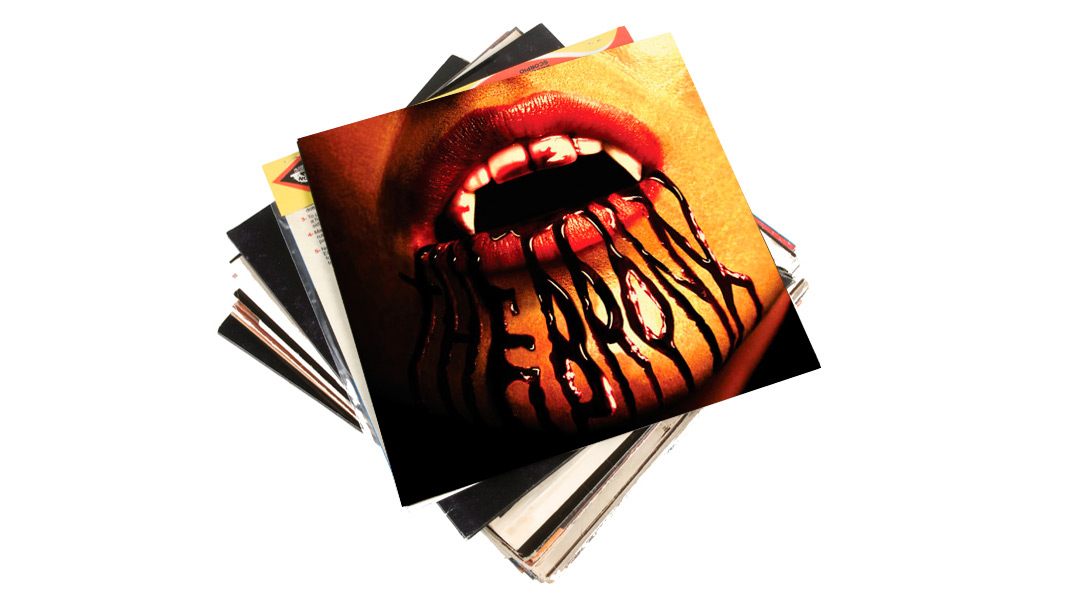
12. The Bronx - The Bronx (2006)
“At first, this felt different for me, but I soon realised that it wasn’t at all. It was just another intense band - it doesn’t really matter what genre of music they fall into. I was gradually being pigeonholed as a metal producer and I didn’t really feel like one. That said, there was definitely a lot of screaming on this album!
Producers love to have a big ego saying, ‘I got them to do this or that,’ but actually you can’t make anybody do something they don’t want to
“Working with those guys, helping with song arrangements and recording the performances was a lot of fun. They were the first I’d worked with that wanted a live sound as much as possible. Most bands can’t do that – even if they think it will sound good, it never quite works out… almost like a pipe dream. The only people that can really pull that off are guys like Jimmy Page, who was a session guitarist for years before Led Zeppelin.
“For the vocals, I did something similar to what I did with Jonathan [Davis] from Korn; I wanted to keep Matt active and at the right level of intensity. I’m not sure if he’d been pushed that hard before… well, I feel uncomfortable with the word pushed because it suggests coercion.
“Producers love to have a big ego saying, ‘I got them to do this or that,’ but actually you can’t make anybody do something they don’t want to. It’s more about convincing them why working in a certain way will yield better results. Matt really went far in trying to get great performances for himself, and I was very proud of him for that.”
Amit has been writing for titles like Total Guitar, MusicRadar and Guitar World for over a decade and counts Richie Kotzen, Guthrie Govan and Jeff Beck among his primary influences. He's interviewed everyone from Ozzy Osbourne and Lemmy to Slash and Jimmy Page, and once even traded solos with a member of Slayer on a track released internationally. As a session guitarist, he's played alongside members of Judas Priest and Uriah Heep in London ensemble Metalworks, as well as handling lead guitars for legends like Glen Matlock (Sex Pistols, The Faces) and Stu Hamm (Steve Vai, Joe Satriani, G3).
